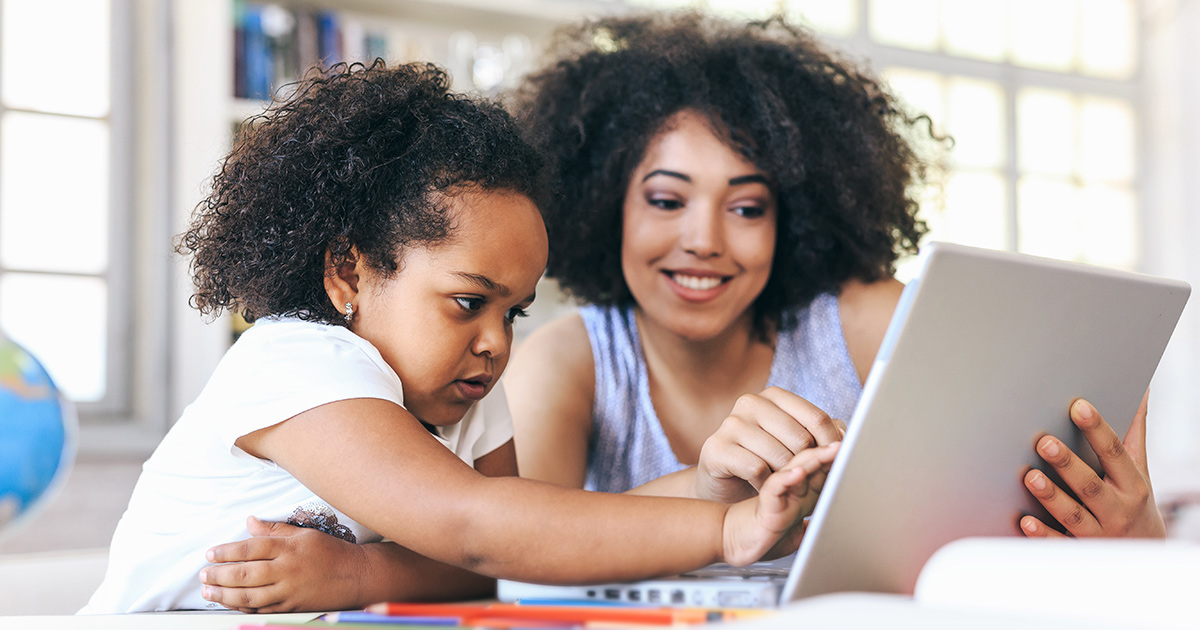
Right now, in the middle of the coronavirus pandemic, you may have orders to shelter in place, and your children’s school was likely closed. You’re wondering, what’s going on? What should we be doing? What’s the impact going to be?
Like many others, you turn to the news for answers. And you may be consuming a LOT of news!
Why should we be mindful about news and media?
Now, more than ever, it is important to be a mindful news consumer. This means not only identifying credible and trustworthy information, but also keeping tabs on how our emotions and well-being factor into our news habits.
What can I do now?
Practice active viewing
We know not everything we see online and on TV is true. But how can we be sure? Before jumping to conclusions and taking a headline or information at face value, use critical and “active viewing” methods. The SIFT method is easy-to-use and helps you and your kids determine fact from fiction. It includes:
- Stop.
- Investigate the source.
- Find better coverage.
- Trace claims, quotes, and media to the original context.
Learn about the deeper skills of SIFT. This would make a great home learning assignment for any adult, high schooler, or middle schooler in your household.
Be aware of confirmation bias
Confirmation bias is when we interpret or seek out information that confirms what we already believe (despite the evidence). We may see a headline that is in line with our beliefs, and believe it’s true. But there’s a lot of misinformation and hoaxes about the coronavirus spreading online (see a collection of the coronavirus hoaxes on Snopes). To be aware of our confirmation bias, we can ask questions to ourselves and out loud to your family such as: Does the story confirm beliefs you already have? Why? What if you thought the opposite of those ideas? You can also branch out from your usual news sources to seek other information, even disconfirming information, from verified primary news sources.
Be mindful of your news habits
Mindful news consumption helps you and your family get the information you need, but while taking care of your emotions and overall well-being. Helpful tips include:
- Limit information overload. Turn it off and take a screen break. Identify for yourself – and limit for your kids – when, where, and how much your family will consume news.
- Avoid triggers. Triggers are things that make your children feel negative (anxious, sad, or scared). For example, having TV news on in the background can raise anxiety levels in kids. Scrolling social media and especially seeing arguments or flame wars can make them feel uneasy. Help your kids identify their triggers around news and media, and try to avoid them. (Also.. do this for yourself!)
- Talk to your children. What’s happening now is quickly changing and uncertain. Children need assurance. Talk to your children about what they’re seeing and hearing, and reassure them that they are safe and you will get through this.
Kelly Mendoza is Senior Director, Education Programs at Common Sense Education where she oversees education programming and content strategy, including the Digital Citizenship Curriculum, interactive games, and online professional development for schools. She has developed research-based curricula in digital citizenship, media literacy, information literacy, and social-emotional learning (SEL). She develops programs that help students and schools create a positive culture around learning and technology. She has also developed educational resources and curriculum for Lucas Learning, the Media Education Lab, and PBS Frontline. Kelly has a PhD in Media & Communication from Temple University. Follow her on Twitter: @kellymendoza
Categorized as: Tips for Teachers and Classroom Resources
Tagged as: Toolkit: Be Informed, Trauma and Resilience
